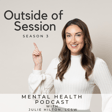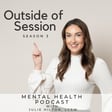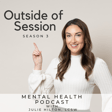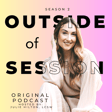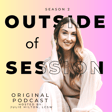
Purity Culture Recovery
Just in time for Valentine’s Day! In today’s episode Julie sat down with Dr. Camden Morgante, a leading expert in the field, to discuss her work in helping women recover from the damages of purity culture.
In this episode, we tackle the sensitive yet critical topic of recovering from purity culture and dismantling the toxic messages young women have been taught about their bodies and their sexuality by the evangelical church. We explore the emotional, psychological, and interpersonal aspects of recovery, providing a supportive space for listeners on a journey towards healing and self-discovery. You won’t want to miss this one!
About today's guest:
Dr. Camden Morgante is a licensed clinical psychologist with over 13 years of experience as a therapist, college professor, and supervisor. She owns a private therapy practice focusing on women’s issues, relationships, sexuality, trauma, and spirituality. She is a writer, speaker, and coach on purity culture recovery, egalitarianism, and faith reconstruction. She is currently writing a book on healing from purity culture which will be published in Fall 2024 by Baker Books. Dr. Camden lives in Knoxville, Tennessee with her husband and their daughter and son.
Get in touch with Dr. Camden:
Website: www.drcamden.com
Take my free quiz, “Which Purity Culture Myth Affects You?”: www.drcamden.com/take-the-quiz/
Work with me: www.drcamden.com/coaching
Instagram: www.instagram.com/drcamden
Facebook: www.facebook.com/drcamden
Twitter: www.twitter.com/doctorcamden
